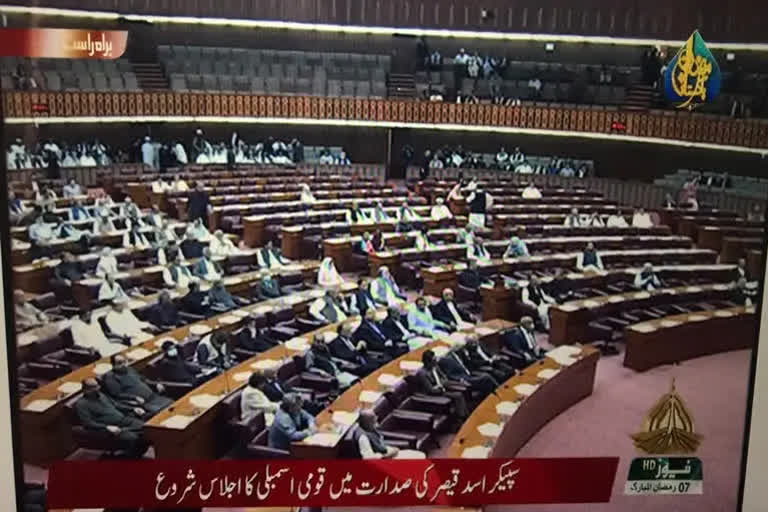Islamabad:The conversation that rattled the then Prime Minister Imran Khan-led government in Pakistan took place on March 7 at a farewell lunch for the country's ambassador to the US Asad Majeed Khan at his residence in Washington, which is also known as Pakistan House, a media report said on Sunday.
Citing diplomatic and official sources, Dawn newspaper reported that a note-taker also attended the lunch meeting and the cable that Ambassador Khan later sent to Islamabad was based on the notes taken by the note-taker, who was from the Pakistani Embassy. Since the lunch meeting attended by Assistant Secretary of State for South and Central Asian Affairs Donald Lu and Deputy Assistant Secretary Lesslie C Viguerie - was held less than two weeks after the Russian military operation against Ukraine, the invasion dominated the conversation, the paper said. The sources said the US side expressed its disappointment with Pakistan's decision to send its prime minister, Imran Khan, to Moscow the day Russia invaded Ukraine, the paper said.
They pointed out how the invasion had angered the entire American nation and explained why they thought Khan should have postponed his visit, one of the sources said. Another source said Lu hinted that Washington believes the final decision to go ahead with the visit despite the invasion was that of Imran Khan although some Pakistani officials had suggested postponing it, the paper reported. Ambassador Khan, according to these sources, argued that it was a collective decision and that Pakistan had been trying for a Moscow visit for years. And when the invitation came, they could not turn it down or postpone it.
The Americans, however, argued that Islamabad should have also considered Washington's sensitiveness on this issue before going ahead with the visit, the paper said. The sources said the conversation then drifted to the current political environment in Pakistan, and Lu pointed out that Washington was keenly watching the situation and the outcome of a no-trust move against the then prime minister would impact US-Pakistan relations as well, the paper said. One source claimed Lu's arguments were alarming and far from routine, but he did not threaten a regime change.
The source also claimed that no one attending the meeting felt that the Americans were hatching a conspiracy to topple the Pakistan Tehreek-e-Insaf government led by Khan. No, there's no conspiracy. Nobody got that impression, the source added. But they did say the outcome will impact bilateral ties, which can be interpreted either way.
The sources said the Americans never concealed their disappointment with Pakistan over Khan's Moscow visit. They claimed that Army Chief Gen Qamar Javed Bajwa had planned to visit Washington in April, but postponed it after learning how the Americans felt about Ukraine. I never thought it was a US conspiracy, but it triggered certain reactions that impacted the domestic political situation in Pakistan, another source said. What Lu said reflected what the Biden administration feels and thinks. It was very unusual. Not one bit routine.
